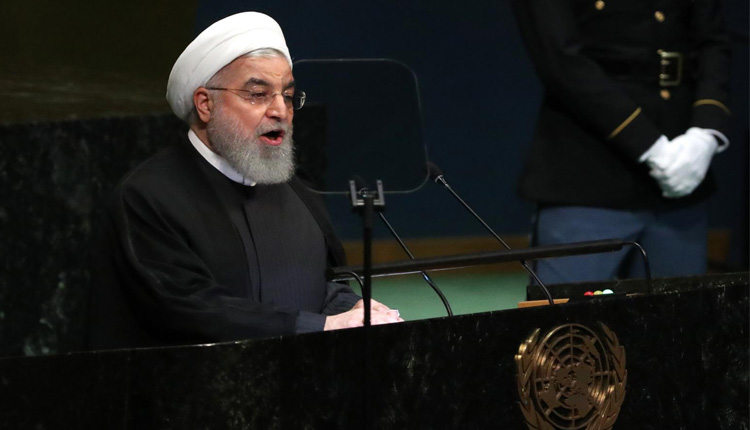Judges at the International Court of Justice, the highest United Nations court, will rule Wednesday on an Iranian plea to have U.S. sanctions against Tehran lifted.
Iran asked the ICJ, which is also known as the World Court, to order Washington to suspend the sanctions temporarily while it hears Iran’s case in full, a process that could take years.
Washington says that Iran’s request is an attempt to misuse the court. Iran has invoked a little known 1955 Treaty of Amity that was signed before Iran’s 1979 Islamic Revolution, which caused a sharp deterioration in bilateral ties that has endured until today.
U.S. State Department Legal Adviser Jennifer Newstead argued during oral hearings last month that the 1955 treaty specifically rules out using courts to resolve disputes.
Iran’s real quarrel, she argued, is not within the court’s jurisdiction, but Iran’s frustration over U.S. President Donald Trump’s plan to pull out of a 2015 pact between Iran, the U.S. and other major world powers.
That pact saw sanctions against Tehran lifted in return for it accepting curbs on its nuclear program. But the Trump administration said in May that it was withdrawing from the agreement and announced unilateral plans to restore sanctions against Tehran.
The U.S. move has been opposed by other major powers, the Britain, Russia, France, China, Germany and the European Union, which helped negotiate the deal.
Iran says the U.S. sanctions, which have prompted many foreign companies to stop doing business with it and are undermining its already weak economy, violate the terms of the 1955 treaty.
Despite international criticism, Washington is pushing ahead with the measures. A new series of sanctions is due to go into effect Nov. 4.
The ICJ is the United Nations’ highest court for resolving disputes between nations. Its rulings are binding, but it has no power to enforce them, and the United States and Iran are both among a handful of countries that has ignored its decisions.
source: Reuters


